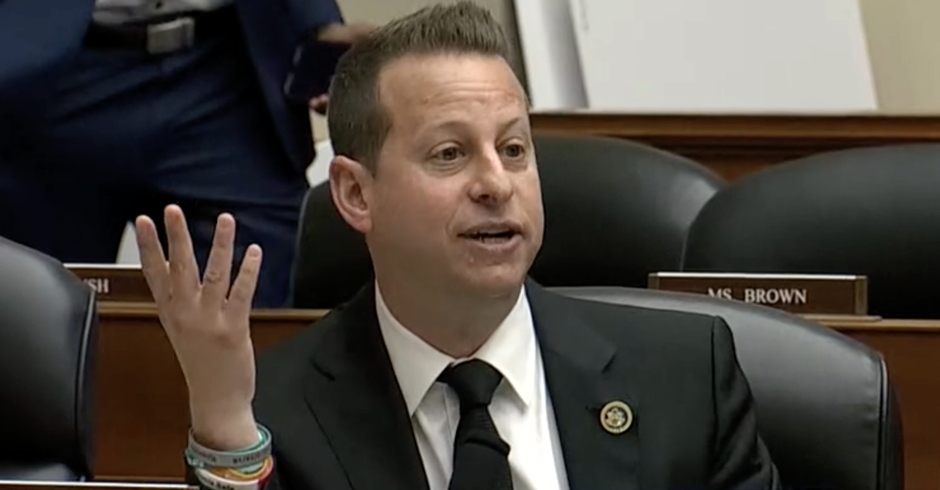Helpful Advice For LGBT People Wanting To Start A Family
There are many choices for LGBT people interested in starting their own families, but how do you know which path is the right one for you? This article breaks down the various possibilities to help you make the right decision.
When my husband and I decided to expand our family, we started evaluating the best way to move forward. We didn’t realize researching the topic would be so challenging and time-consuming. What we found were that there were many choices for same-sex couples looking to have children; however, it was almost impossible to know about each of them, let alone research them.
What is an open adoption and how does it differ from adoption in general? What does co-parenting mean? These were terms I had never heard of before.
While researching all of these various methods and contacting different agencies, we eventually found the answers to many of our questions regarding costs, processes and legal issues. Lacking, however, were firsthand stories from people who had children themselves. What was it like for the people who went through the process? There was no human link to the very technical and clinical information we found regarding the process.
In the end, we felt open adoption was the right path for us. It was an amazing journey, but when reflecting back on it, I still wish we had more information going into the scenario. That’s why I wanted to make it easier for other people looking to expand their own families.
And that’s why I wrote, Journey to Same-Sex Parenthood, a new book you can check out on Amazon. It compares each family building path from the perspective of other couples that have already had families of their own.
Below, I will break down the five most common paths to parenthood with a brief introduction as to what you should know about each one before moving forward. Please keep in mind, these are only brief summaries. For more detailed information, take a look at my new book, Journey to Same-Sex Parenthood.Â
.jpg)
OPEN ADOPTION
Open adoption was designed as a way to benefit all parties involved, giving everyone (the birthparents, the adoptive family and the child) more information about each other. With open adoption, the birthparents and the adoptive parents get to meet each other prior to the adoption taking place. They share information with each other and can remain in contact over the years.
There are numerous benefits to open adoption. Some examples include birthparents having the peace of mind of knowing their child is being raised in a safe and stable home, the adoptive family getting more information about their child’s family medical history and the child having the opportunity to know more about his or her biological heritage and background. Of course there are challenges too, like unpredictable waiting periods, emotional stress, adoption scams and the possibility that a match will fall through. A qualified and reputable adoption agency can help to alleviate some of the stress by weeding out potential scams and by providing emotional support to help you get through the obstacles that pop up along the way.
FOSTER CARE/FOSTER ADOPT
Foster care is a situation where minors are temporarily placed into safe environments in the event that they are unable to live safely with their families. Children can end up in foster care as a result of neglect, abuse, divorce, the death of a legal guardian or a plethora of other unfortunate and tragic events that could disrupt a home. Foster care is designed to be a temporary solution until a child can be reunited with his or her previous parents or guardians, meaning you will only be caring for the child during a short transition period. However, reunification is not always possible and sometimes this temporary care can lead to a more permanent situation through adoption.
It is important to fully understand a child’s background and how your life will be impacted before you decide to open up your home. If you choose to become a foster parent, you will play a vital role in adding stability to a child’s life by providing a safe and comforting home environment in his or her time of need. Also, there are still kids who get kicked out of their homes because of their sexual orientation or gender identity and it can be hard for LGBT children in foster care to find permanent homes. It’s also challenging to find people willing to take in a child living with HIV/AIDS. As a prospective LGBT parent, you are in a unique position to help kids in our community grow up in a safe, stable and accepting environment.
SURROGACY
A surrogate is a woman who carries or gives birth to a child on behalf of another person or couple. One of the benefits of surrogacy is that you have the opportunity to witness and be a part of the pregnancy journey. You can be present for sonograms, the baby’s first heartbeat and even the birth. All of that comes with a price, though. When taking into consideration the cost of hiring a surrogate, possibly paying a portion of the surrogate mother’s living expenses, the cost of the medical procedures, agency fees, lawyer fees and more, you’re looking at somewhere over $100,000. On top of that staggering number, many insurance companies will not cover the costs of the fertilization or delivery when using a surrogate. Surrogacy is by far the most expensive journey to parenthood.
Because of the large sums of money involved, you need to make sure you’re not being taken advantage of. There are plenty of scams that prey on unsuspecting people with dreams of building a family. Make sure you thoroughly research potential agencies prior to working with one. Don’t make your decision based on a well-designed website or the testimonials found there. Ask for references so that you can speak directly to people who have been through the program. Contact independent physicians, attorneys and mental health professionals for objective opinions about the agency and program you are considering. Also, make sure to seek the advice of an independent attorney who can oversee the process and advocate on your behalf.

Photo courtesy of Thomas Whaley
ASSISTED REPRODUCTION
When women decide to have children together, it is very common for them to choose assisted reproduction, and for one person in the relationship to carry the baby. There are many benefits to this, such as having the opportunity to go through the experience of being pregnant together and supporting each other along the way. As a couple, you can participate in various things together including doctor visits, Lamaze classes and even birth. You’ll also be involved in your child’s life from the moment he or she is conceived, having the opportunity to see the baby’s sonogram and even listen to your child’s first heartbeat. If you are both in the same room during the actual delivery, your partner or spouse can support you by holding your hand, helping you with your breathing and comforting you along the way.
If you choose to move forward with assisted reproduction, you’ll need to decide whether you would like to use a known donor (for example, an acquaintance or friend) or an unknown donor. There are advantages and disadvantages in both scenarios.

Photo courtesy of Sarah Gilbert
When the donor is known, your child can develop a relationship with them as he or she grows up. Your child will have a better understanding of where he or she came from and why he or she might have certain characteristics and traits. However, there is a greater risk that the donor may later try to claim parental rights. There may even be a possibility that you or your partner could lose custody. When using a known donor, it is recommended that you consult with an attorney specializing in Reproductive Law and have a Known Donor Agreement signed. Keep in mind that a Known Donor Agreement will not necessarily terminate the donor’s rights, even if it says so. That’s why consulting with an attorney beforehand is crucial, especially since the laws vary by state.
If you choose an unknown donor through a sperm bank, you’ll have access to the donor’s comprehensive medical history and the ability to control your child’s exposure to problematic genes. The specimens can also be quarantined and tested for sexually transmitted diseases. This can reduce the risk of passing anything on to you or your child. However, when using a sperm bank, the costs can add up tremendously depending on what services you select. Many insurance companies will not cover alternative insemination unless there is a diagnosis of “infertility†or if you have tried to inseminate without success for a period of time. Make sure you ask your health insurance company how they define infertility, what treatments are covered and if their policy covers insemination for same-sex couples.

CO-PARENTING
Co-parenting is when two or more people in a platonic relationship raise children together. It’s most commonly seen when heterosexual couples separate but still have joint custody of their children. However, there are other instances where individuals decide to co-parent without ever being romantically involved. Think of it as a shared custody scenario without the ugly divorce.
Whenever additional people are involved in raising the child, there are many opportunities to create a more balanced life. While one parent or couple is taking care of the child, the other person or couple can catch up on things like sleep, chores, work-related activities or hobbies. This allows you to be more focused on your child when he or she is present. Because there is shared custody, you can also have free time while your child is staying with his or her other parents. This makes it easier to schedule date nights and have more alone time with your partner.
A well-thought-out co-parenting scenario can be great for everyone involved, including the children; however, that doesn’t mean there aren’t risks associated with it. If the moms have one set of rules at their house and the dads have another set of rules at theirs, things can get complicated very quickly. Jealousy can even creep in if people are not secure in the parenting relationship structure they’ve created. This can result in an uncomfortable situation for all involved. Making sure that everyone is on the same page in the beginning will make things easier later on down the road.
There can be legal complications too, since only a few states acknowledge that a child can have more than two legally-recognized parents. You may be able to do a third-parent adoption in some states, but it’s best to consult with a lawyer to fully understand your rights.
Please note, the above summaries are brief. For more detailed information, along with firsthand stories from other same-sex parents, legal tips, and the top questions you should ask yourself before moving forward, please read my book, Journey to Same-Sex Parenthood, published by New Horizon Press. It’s available now wherever books are sold.
Â
Eric Rosswood is a regular contributor to the New Civil Rights Movement. He is also the author of Journey to Same-Sex Parenthood and the marriage equality children’s book, My Uncle’s Wedding, which received a proclamation from CA State Senator, Mark Leno. To learn more about Eric and his work, visit www.ericrosswood.com.
Â

Enjoy this piece?
… then let us make a small request. The New Civil Rights Movement depends on readers like you to meet our ongoing expenses and continue producing quality progressive journalism. Three Silicon Valley giants consume 70 percent of all online advertising dollars, so we need your help to continue doing what we do.
NCRM is independent. You won’t find mainstream media bias here. From unflinching coverage of religious extremism, to spotlighting efforts to roll back our rights, NCRM continues to speak truth to power. America needs independent voices like NCRM to be sure no one is forgotten.
Every reader contribution, whatever the amount, makes a tremendous difference. Help ensure NCRM remains independent long into the future. Support progressive journalism with a one-time contribution to NCRM, or click here to become a subscriber. Thank you. Click here to donate by check.
 |






















